In the early '90s, a relationship guidebook titled Men Are from Mars, Women Are from Venus, written by John Gray, became a cultural phenomenon. Those of you lucky enough to remember those heady years will no doubt recall its popularity - thanks in no small part to its title, which relied on the metaphor that men and women are so fundamentally different in how they think, communicate, and behave that they might as well be from different planets.
I always felt that the onus was then, and still is to some extent, on the man to understand the complex enigma of the female form. But let me tell you, I don’t blame menfolk for their confusion. For years I’ve felt like an outsider to womanhood. Before I continue, I want to clarify that, as a child, I never believed I was ‘in the wrong body’ or wished I were a boy - even though, growing up, my chubby chocaholic-self resented being told that Yorkie bars were off limits.
It’s just that in my 52 years (and counting) on this planet, I have never felt like one of the girls. But it’s only now I can appreciate that this wasn’t necessarily a good or bad thing.
We all know that, from a young age, females are socialised to form bonds that adhere to a certain expectation of gender roles - and while we've made significant strides in moving beyond sexist tropes, many assumptions about what it means to be a woman (in the behavioural sense) remain deeply ingrained. You only have to look at the Gifts for Her section on any website to see that, frankly, you’ve failed as a female if you don’t own a Prosecco glass the size of a small child’s head.
I speak, of course, from my own experience. Reflecting on those formative years, nursery school was a blur. I know, from hearing stories from my mother, that I spent most of the time staring at the iron gates, willing her to save me from the hell that was (and still is) forced fun. I fared much better at primary school.
The girls were nice, but I was often bemused by their clannish behaviour and instead concentrated on attaching myself to the 'interesting' kids. Or as my Irish father once said, "Is she ever going to bring a normal one home?" Different times, dear reader, different times...
My best friend during this period was a boy who didn’t deride me for my (admittedly strange) hobby of collecting snails and worms. In retrospect, keeping them ‘safe’ in matchboxes could now be viewed as cruel incarceration, so it’s probably a blessing that my fascination with little critters faded by the time I finished primary school and started at St. Ursula’s Convent - cos that crazy shit wouldn’t fly with the nuns.
Single-sex education was commonplace in the 1980s, and to be fair, the school boasted an impressive academic record, However, the teachers were mostly female (obvs) and of course, the student body consisted solely of girls, which tended to reinforce stereotypical behaviours and expectations. Added to the challenge was the unspoken reality that my puppy fat, thick glasses, braces, and dodgy perm weren’t deemed endearing in an environment where appearance seemed to be the only currency that mattered.
It’s not as if there weren’t kindred spirits; I remain good friends with one or two. But back then I envied the ease with which my contemporaries formed bonds, creating tight-knit groups and establishing hierarchies. I, on the other hand, felt like an observer rather than a participant - much like David Attenborough, studying the curious, almost alien behaviour of a species that seemed so distant from my own.
These girls relished dissecting the ups and downs of their relationships, discussing boys they knew or claimed to know, experimenting with makeup, obsessing over fashion, comparing bags, shoes, and sex. The only connection I shared with them was music - but while their devotion centred on bands such as Bros, which predictably led to heated discussions over who was the most ‘shaggable’ - Matt or Luke? (Poor Craig never got a look in) - the tapes in my Walkman were worn thin from playing Five Star on repeat.
Puberty is not an easy time. We can all agree on that. Each of us navigates our way through the fog of uncertainty; it’s just that some do so with blind confidence. Those girls grew into women who now fondly look back on their secondary school years - many follow Facebook pages dedicated to connecting past pupils, reminiscing over ‘good times.’
I used to dip into these sites just to see what sort of alternate reality they lived in. We were unanimous in our dislike of a frankly terrifying Home Economics teacher, but their rose-tinted versions of that period do not align with my memory of the place. Which is why, when my sentence was served, I delighted in looking toward the next chapter of my life: higher education - a joyous time, helped by the fact I’d not only learned how to say no to a chocolate biscuit, but by now had discovered contact lenses.
Don’t get me wrong, I was no Sophia Loren, but my body image had improved, as had my confidence - and studying alongside the male species was an eye-opener. Boys didn’t take themselves too seriously, and for the first time, I glimpsed a world where humour and personality trumped appearance. As I navigated this new terrain, I still wasn’t one of the ‘fit’ girls, but I was (kinda) funny. And funny cannot be faked. As a currency, it is something far more enduring - valuable not just for what it can buy, but for the way it can disarm and engage, earning respect and attention in ways looks alone simply can’t.
During this time I evolved alongside fellow members of my species - mindful that, while they were mostly good company, the tribal rituals persisted. Cliques continued to form, even at Uni, and with them the pressure to adhere to group norms and behaviours. These girls were growing into young women, and I was playing catch-up. By this point, it didn’t matter as much, because I had caught a glimpse of the world beyond the confines of education - a world that promised opportunities unbound by the need to conform to a particular version of womanhood.
Or so I thought.
Before the internet became ubiquitous, life moved at a slower, more tangible pace. I’ve previously written about the era of the Saturday job, where there was an unspoken understanding among co-workers that our time together was fleeting, so for the most part we were a united front - young men and women alike - focused on doing what was needed to earn our first taste of financial independence.
Much of my leisure time was spent watching bands perform, and while I had some wonderful like-minded female friends, I was deeply entrenched in a social circle that was overwhelmingly male - all the while remaining on the periphery, observing groups of women unfolding into pubs and clubs, commandeering toilets and cluttering dance floors. My role by then was firmly established as ‘one of the lads.’
As we know, the 1990s celebrated personality, independence, and rebellion - a stark contrast to the narrow ideals of beauty and femininity that gained prominence in the decades that followed. But while it lasted, I embraced it wholeheartedly, eschewing Bacardi Breezers for pints of Snakebite & Black. These were the days when I, on occasion, wore woolly jumpers to nightclubs - a sartorial choice that perhaps explains my lateness to the party on the boyfriend front.
I have no visual proof of my ladette status because the only person taking photos back then was a suited man with what looked like a Box Brownie, who made a couple of quid wandering around the local club in South-East London, providing us pissheads with Polaroid evidence of our exploits. How I wish I hadn’t dismissed the old fella.
Eventually, this carefree booze-soaked chapter gave way to the looming reality of full-time employment. My first ‘proper’ job was assistant to a BBC casting director. A solitary role that involved long hours on the phone and trawling through Spotlight directories. But when it soon became clear that in order to eat, I needed to earn more money than a career in the arts would allow, I went onto find work in male-dominated industries such as software and gaming. It wasn’t a conscious decision, or at least I don’t think so, but looking back, who’s to know?
Fake it till you make it, as the saying goes - and I suppose I eventually did. I learned to look the part, sound the part, and somewhere along the way, managed to pass as one of the girls. But where I once secretly hoped to be included, I was now actively resisting invitations to join the female fraternity.
"Fancy a girlie spa break/ yoga retreat/night out/weekend away?”
My answer to all of the above was a polite but firm, “No, sorry - I can’t,” swiftly followed by whatever excuse came to mind.
Let me be clear: there’s absolutely nothing wrong with enjoying that kind of thing. The problem isn’t with them - it’s with ME. (Except for traditional hen do’s - we can all agree that aforementioned ‘forced fun’ is best avoided.) It’s just that deep down, I was, and remain to some extent, terrified I’ll say the wrong thing, that I’ll somehow be exposed as an imposter - someone who neglected to read the manual on How to be a Woman.
And over time the divide deepened. Friendships evolved as women around me settled down and had children. I told myself I wasn’t ready, but truthfully, I envied their camaraderie, their ability to gravitate toward others who spoke the same language of sleepless nights and school runs. My outsider status solidified, and I found solace in childless friendships, creating a tribe of my own, to this day.
However, my stubborn refusal to adhere to a certain expectation of femininity was put to the test when planning my wedding (yes, dear reader, I finally caught a ‘normal’ in my net.) Although the photo of our joint hen and stag do, below, might make you question the validity of that description.
There I was, at the age of 45, deciding on style of dress, make-up, hair, nails - it was all consuming…and get this…I loved it. To be honest, I had long assumed that I’d missed the chance to embrace my inner bridezilla, but instead I was having many a sleepless night over French manicure or gel? Hair up or down? Satin heels or white converse? And I know for a fact that the DJ at the reception, really welcomed my demands input re. the music.
And 7 years on, I’m the exotic bird, the stepmother living on the other side of the world. Old insecurities still linger, but I’m finding my place in this new chapter. While I marvel at the ease with which the women in my aqua class can chat about the most innocuous topics, I’ve learned to join in - up to a point. Small talk still feels like running a marathon with a pebble in my shoe, but I try. From the outside, I might pass as one of the girls.
As a child, I had a sharp awareness of others' discomfort - a trait that has stayed with me into adulthood. I can still spot the ‘mean girl’ in any group, but rather than retreating or rejecting others before they have the chance to reject me, I’ve learned to push myself gently forward, and in time, I’ve come to appreciate that female connections can thrive beyond the confines of a peer group. Take, for instance, the variety of wonderful women I’ve met through Substack, the bond I share with my stepdaughters and stepson’s girlfriend, also the friendships I’ve formed with fascinating older women.
While I will always treasure the joy of male friendship, I now see that being one of the girls isn’t about blending seamlessly into a crowd or adhering to a specific set of norms. It’s about the connections we choose to cultivate - being true to ourselves, while leaving room for others to meet us halfway.






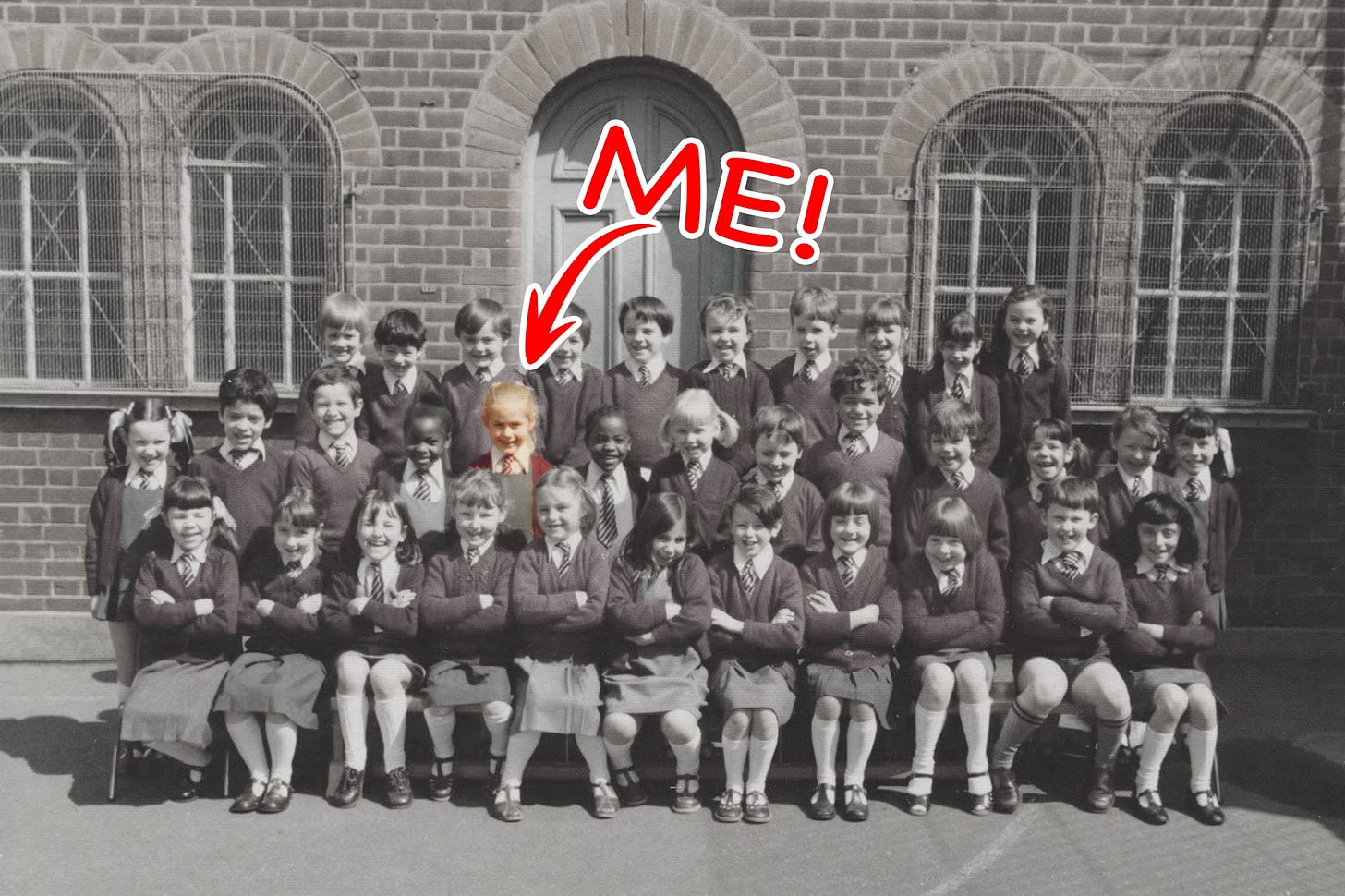
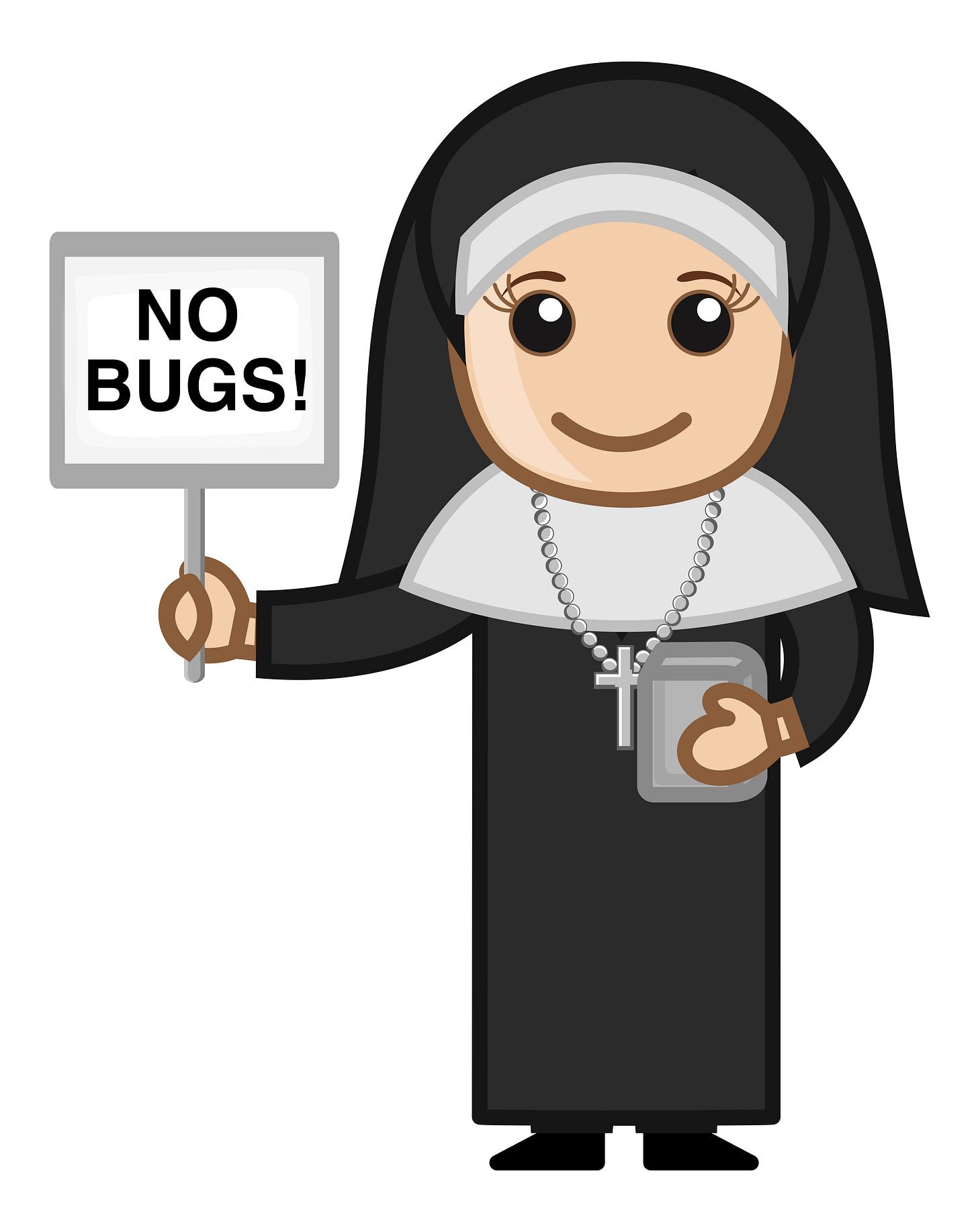
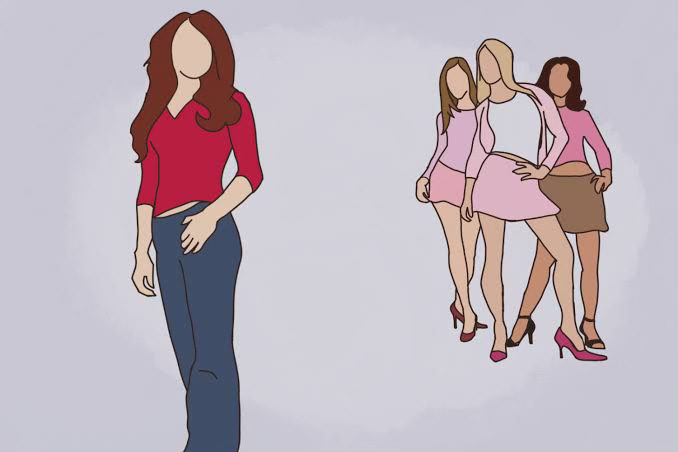

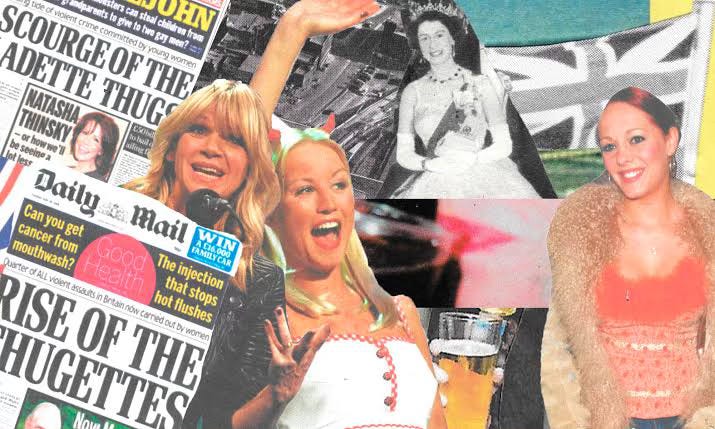
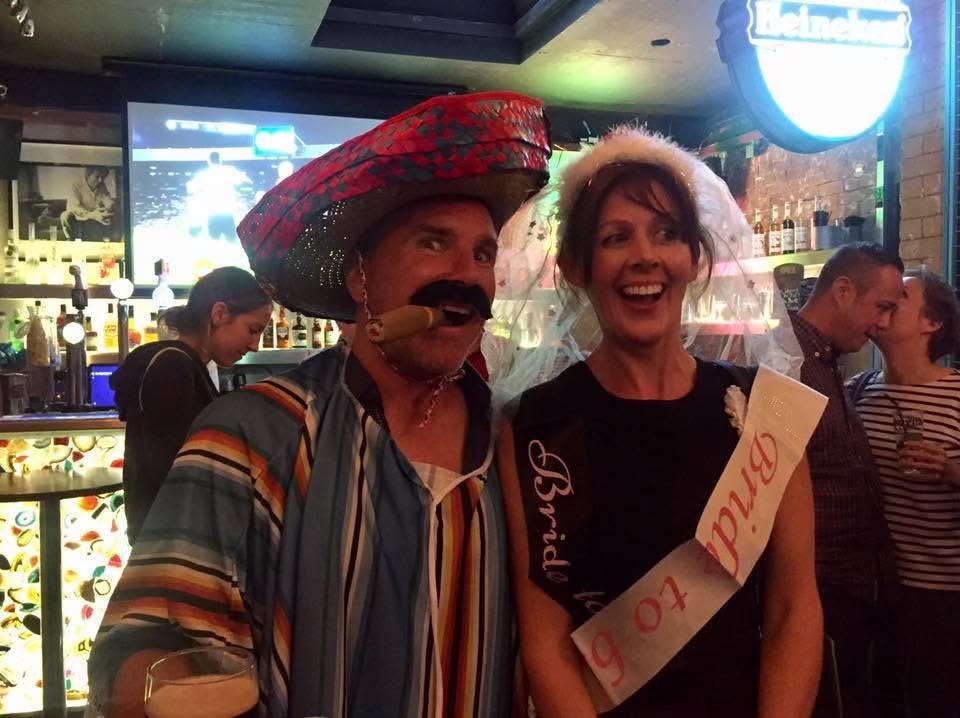
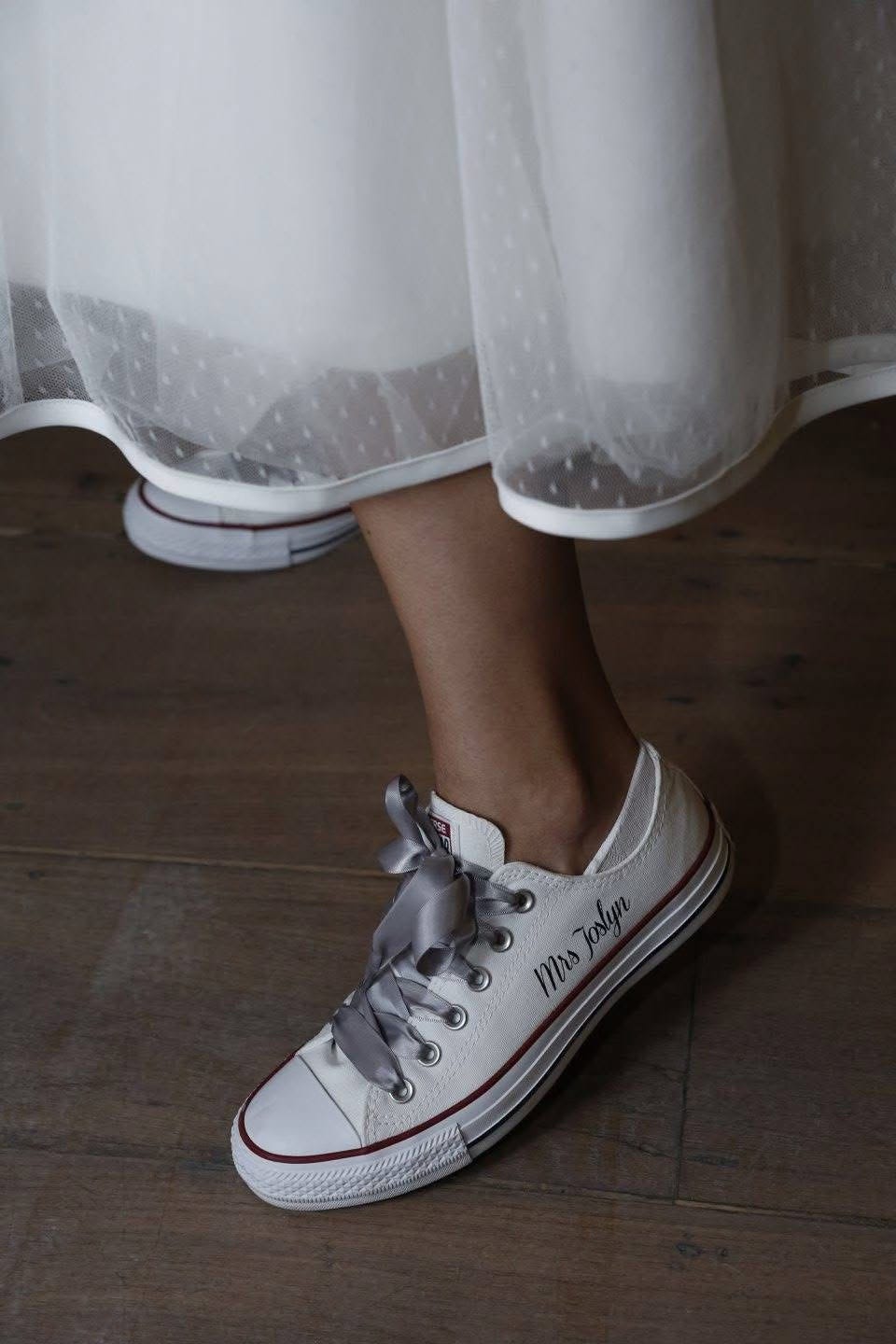
I still tend to be the quiet one in the corner, so can identify with much of this, Sharon. Beautifully told. Love your hen/stag do photo!
Housekeeping query: your posts arrive in my email inbox but don't show up in my inbox on the app. (My settings are to receive both ways.) Hate to think you're missing out on readers because of an unticked checkbox! (Think there's one when you publish asking if you want to send by email, app or both, but of course I can't find it now!)
Really enjoyed this, Sharon! Look forward to reading more of your posts.